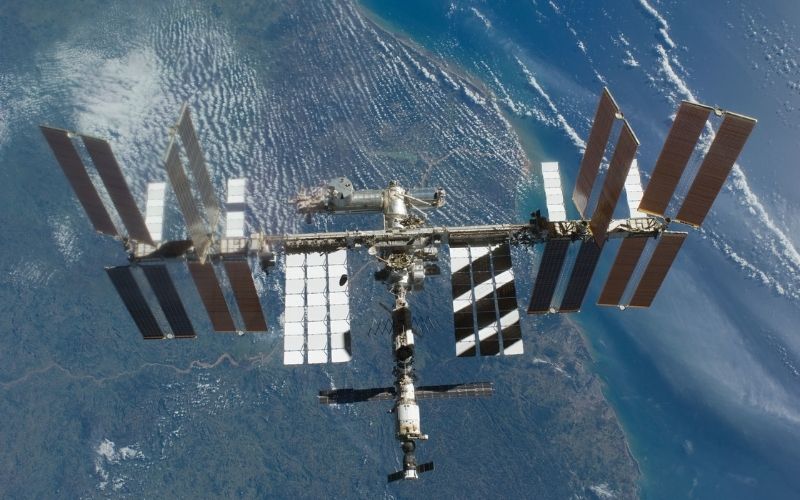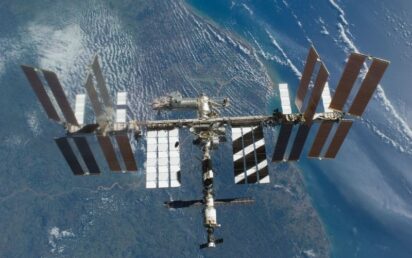A UK-led space ‘biomining’ experiment is on-board the recently launched SpaceX rocket which is on its way to the International Space Station.
Experiments on the station have shown that the process of “biomining” will work in microgravity; a discovery that could help the first space settlers gather the minerals they need to build a long-term presence beyond Earth.
The UK Space Agency funds the Bioreactor Express programme through its £374m per year contribution to the European Space Agency (ESA).
The BioAsteroid experiment will take up match-box sized containers carrying asteroid rock.
It will be used to grow bacteria and fungi in an incubator for three weeks to investigate how gravity affects interaction between the microbes and rock in reduced gravity.
Scientists will investigate how the microbes extract materials from rocks in space.
On Earth, microbes are used in some mining as an environmentally friendly way to access metals. They digest the rock and what is left behind are the metals that miners need.
If successful, this method would support efforts to explore the Moon and Mars, allowing humans to extract building materials, water or rocket fuel.
Experimenting on the International Space Station (ISS) allows scientists to conduct unique investigations on the effects of microbes on asteroidal material in conditions that can’t be replicated on Earth.
Libby Jackson, Human Exploration Programme Manager at the UK Space Agency, said: “If we want to keeping exploring space and pushing the boundaries of what is possible, then we will need to make or find the essential elements required to support life.
“Through our membership of the European Space Agency, UK scientists are able to take advantage of the unique scientific facilities available on the ISS and are at the forefront of efforts to recreate the foundations of life on Earth.”
Scientists at the University of Edinburgh and Kayser Space, based at the Harwell space cluster in Oxfordshire, have collaborated on the project.
It is the first European experiment to be fast-tracked through the Bioreactor Express programme, which is dedicated to biological, biotechnological and biochemistry experiments.
Prof. Charles Cockell, University of Edinburgh added: “To sustain humans permanently beyond Earth we need to get access to useful materials. This experiment advances our ability to do that.
“It will also yield new fundamental insights into processes that are useful here on Earth, such as biomining and how microbes form biofilms that foul our pipes and industrial plants.”
David Zolesi, Kayser Space Managing Director said: “BioAsteroid confirms how much added value there can be in a commercial access to space and Kayser’s high level of expertise in carrying out biology experiments onboard the ISS.
“Going from signing the contract to launch in less than 18 months was only possible by exploiting the ISS on a commercial basis.”


